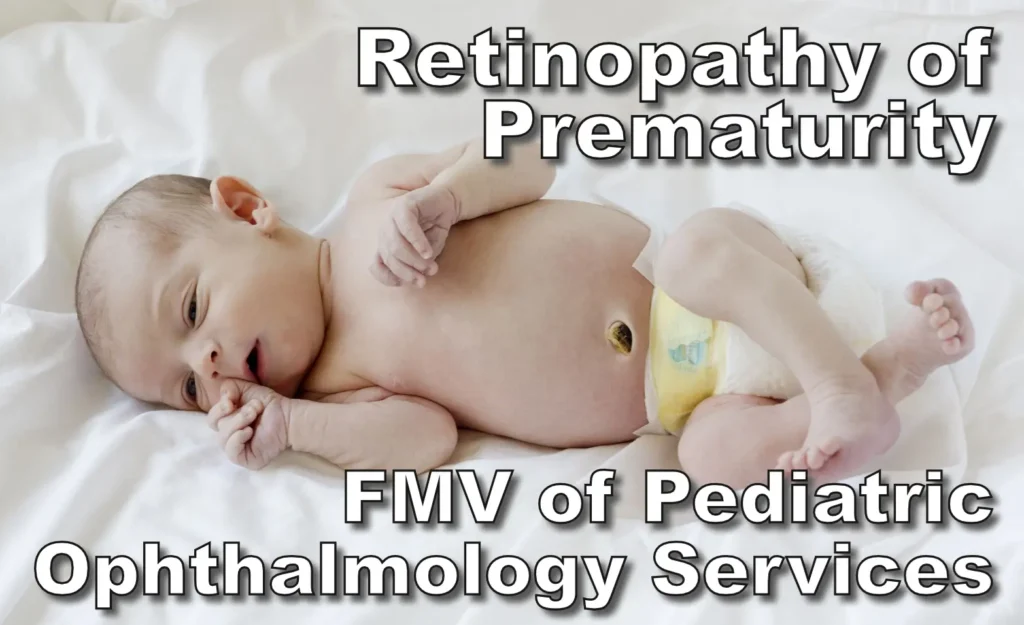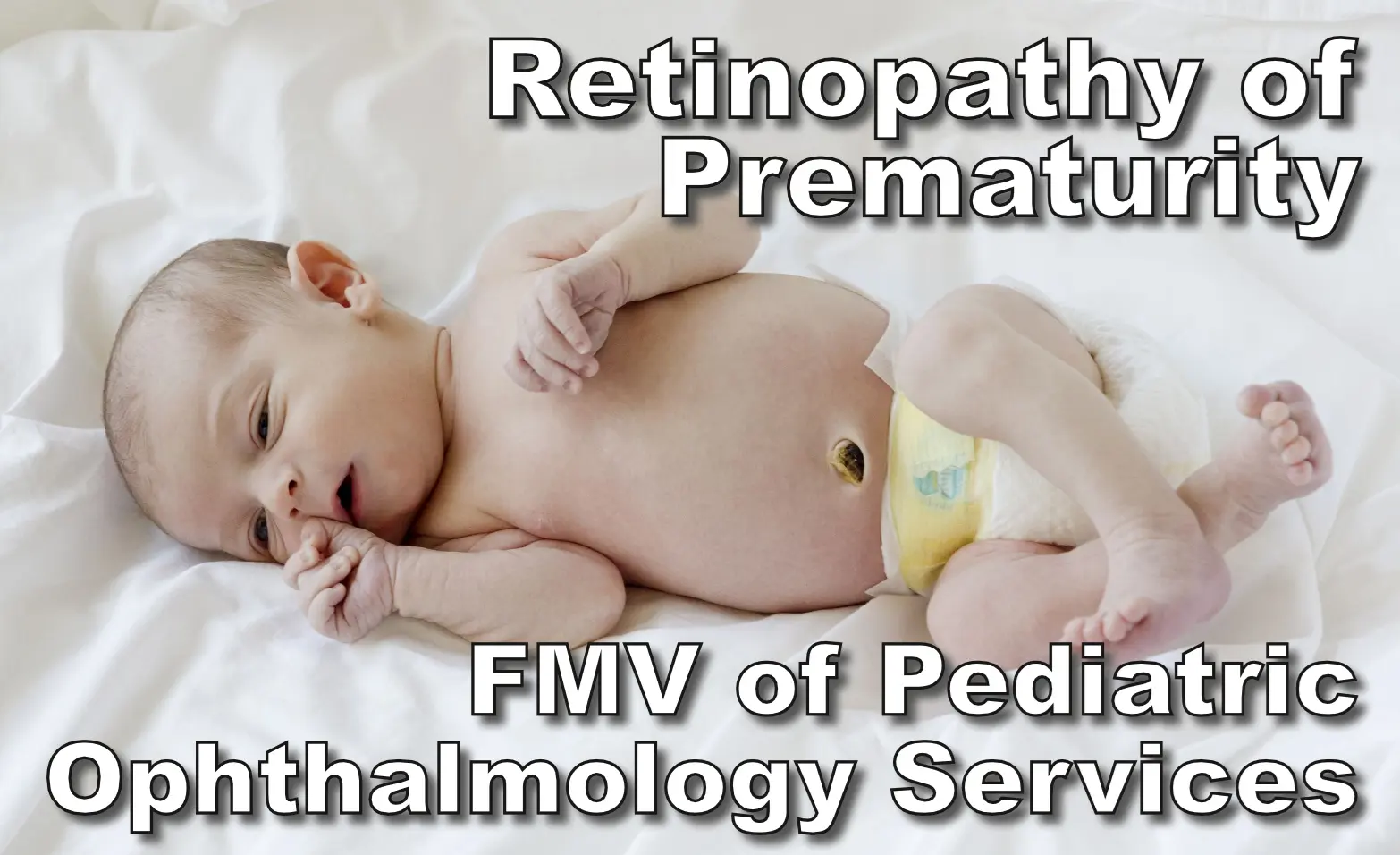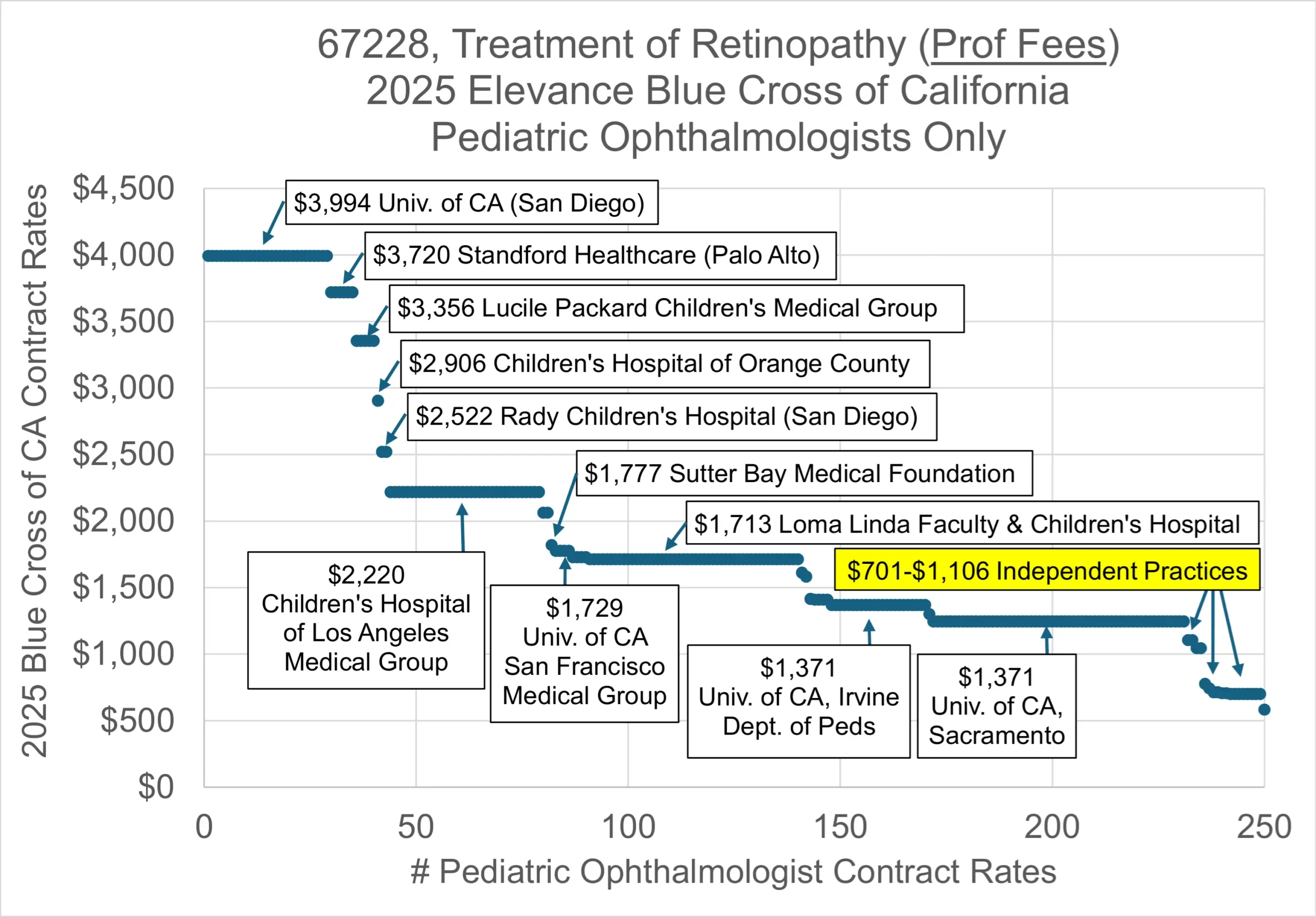
Premature birth interrupts the normal development of blood vessels in infants’ eyes. If not diagnosed and treated in a timely manner, retinopathy of prematurity (ROP) can result in retinal detachment and blindness. Hospital neonatal intensive care units (NICUs) have a compelling need to contract with pediatric ophthalmologists to provide ROP screening and treatment services.
Native Video Player

Retinopathy of Prematurity: FMV of Pediatric Ophthalmology Services
YouTube Player
The American Academy of Pediatrics’ Standards for Levels of Neonatal Care: II, III, and IV. designate screening of ROP in hospital NICUs as a standard of care. These standards define the levels of neonatal care used nationwide for NICU designation levels (I-IV). Some state regulatory agencies, like California’s Children’s Services (CCS), incorporate ROP screening into their NICU state licensing standards.
There is a general shortage of pediatric ophthalmologists with malpractice insurance coverage and hospital privileges necessary to provide ROP screening and treatment services.
What’s worse is that state-based Medicaid reimbursement for ROP services is very low. California’s Medicaid program (Medi-Cal) pays pediatric ophthalmologists about $42 for fundus photography with report (92250) and $300 for ROP treatment (67228). This is inconsequential reimbursement in comparison to the professional liability risk.
ROP treatment is associated with high professional liability risk because the long-term liability for each patient screened and treated for ROP may extend decades.
The commercial insurance market is much more generous than Medicaid. Elevance Blue Cross of California pays pediatric ophthalmologists between $700 and $4,000 for ROP treatment. The rates for independent pediatric ophthalmologists tend to cluster between $700 and $1,100, while the rates for pediatric ophthalmologists affiliated with major health systems range up to nearly $4,000 for the same service.
Because Medicaid reimbursement for these services is so low, it is common for hospital NICUs to contract with pediatric ophthalmologists for ROP screening and treatment services. Like other types of hospital-based services, ROP screening and treatment is a requirement under NICU standards of care and licensure. Hospitals that operate NICUs must arrange for these services through whatever means necessary.
Professional contractual service arrangements with pediatric ophthalmologists may take many forms. Call coverage compensation and guaranteed payments for services are common features. In some cases, pediatric ophthalmologists may assign their billing rights for services to hospital and health system organizations in exchange for guaranteed payments. Though Medicaid reimbursement is still lacking, large hospitals and health systems tend to negotiate better commercial reimbursement than independent practices.
Need a Fair Market Value opinion for ROP screening and testing services?
We have the data!
Our Acuvance DataRise™ Commercial Reimbursement Data subscription includes commercial reimbursement for all types of pediatric ophthalmology ROP screening and treatment services. We can identify the entire range of real commercial payor rates for all ROP services for every single market and health insurance carrier.
Contact Acuvance DataRise™ today to learn more.



